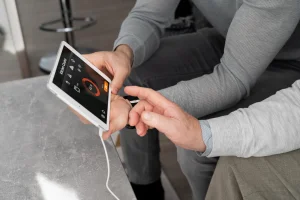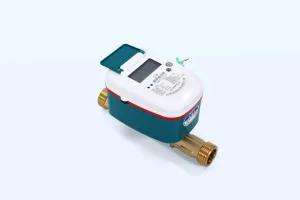تحل تقنية قياس المياه الذكية محل العدادات اليدوية التقليدية بأجهزة استشعار بالموجات فوق الصوتية المتقدمة وأجهزة إنترنت الأشياء لتتبع استخدام المياه تلقائياً، وتوفير بيانات في الوقت الحقيقي وتقليل الأخطاء. تقيس عدادات المياه المشتركة ، الشائعة في الشقق والمساحات التجارية ، الاستخدام الكلي لمستخدمين متعددين ، ومعالجة قضايا الإنصاف والفواتير من خلال التحليلات الذكية. وتعزز هذه الأنظمة الكفاءة عن طريق الكشف عن التسربات وتعزيز الحفاظ على المياه وتمكين الفواتير الدقيقة. تقدم شركات مثل تشن شوو حلول موثوقة ، تدمج ميزات مثل القياس متعدد القنوات ومنصات السحابة. على الرغم من ارتفاع التكاليف الأولية، العدادات الذكية توفير المال على المدى الطويل ودعم الإدارة المستدامة للمياه، مع التقدم المستقبلي المتوقع في التنبؤات القائمة على الذكاء الاصطناعي والسياسات الصديقة للبيئة.
القياس الذكي للمياه هو خطوة كبيرة للأمام من عدادات المياه القديمة. العدادات التقليدية تحتاج شخص ما لقراءتها باليد. على النقيض من ذلك، تستخدم العدادات الذكية أدوات حديثة مثل أجهزة الاستشعار بالموجات فوق الصوتية وأجهزة إنترنت الأشياء لتتبع استخدام المياه تلقائياً. هذه عدادات المياه المشتركة هي أجهزة ذكية معبأة بميزات متقدمة. تعمل عن طريق استشعار تغيرات تدفق المياه على الفور مع أجهزة الاستشعار الحساسة. تحول هذه أجهزة الاستشعار حركة المياه إلى إشارات كهربائية بدقة كبيرة.

كمبيوتر صغير داخل المقياس يعالج هذه الإشارات. ثم تسافر البيانات عبر اتصالات لاسلكية أو سلكية للتخزين أو المشاهدة في الوقت الحقيقي. يتيح هذا الإعداد لشركات المياه والمستخدمين التحقق من الاستخدام على الفور. يساعد على إدارة الموارد المائية بشكل أكثر فعالية.
أجهزة قياس المياه الآلية تجلب العديد من المزايا أكثر من مجرد سهولة الاستخدام. أولا، إنهم يقطعون الأخطاء التي تحدث عندما يقرأ الناس العدادات يدويا. ثانيا، فهي تعطي بيانات فورية عن استخدام المياه، مما يساعد على اكتشاف التسربات أو الأنماط الغير عادية بسرعة. هذه مقاييس المياه المشتركة تراقب استخدام المياه على مدار الساعة. إذا حدث شيء غريب ، مثل ارتفاع مفاجئ أو انخفاض في استخدام المياه ، يرسل العداد تحذيرًا إلى المستخدم وشركة المياه من خلال نظام الاتصالات المدمج فيه.
بالإضافة إلى ذلك، تشجع هذه الأنظمة العادات الصديقة للبيئة. تظهر للناس كمية المياه التي يستخدمونها، مما يساعدهم على اتخاذ خيارات أكثر ذكاءً. بالنسبة لمديري العقارات ، تصبح الفواتير سلسة وعادلة ، مما يوفر الوقت والجهد.
العدادات الميكانيكية القديمة عملت بشكل جيد لسنوات لكنها كانت لها عيوب. كانت قراءتها باليد بطيئة ومعرضة للأخطاء. لم يستطعوا تقديم ردود فعل فورية أو حماية ضد التلاعب. كما جعل التأخير في جمع وتحليل البيانات صعوبة في إدارة المياه في المدن الحديثة بكفاءة.
مع ظهور تكنولوجيا إنترنت الأشياء ، تغيرت أنظمة القياس بشكل كبير. مع نمو المدن وأكثر تعقيداً، توفر العدادات الذكية حلول مرنة. تعمل بشكل جيد في أماكن مع العديد من المستخدمين ، مما يسهل إدارة المياه.
عداد المياه المشترك هو جهاز واحد يتتبع إجمالي استخدام المياه لعدة أشخاص. غالبا ما ترى هذا في الشقق أو النوم أو المساحات المعيشية المشتركة. بدلًا من أن يكون لكل وحدة مقياس خاص بها ، يقوس مقياس مياه مشترك واحد كل شيء.
هذا الإعداد شائع بسبب المساحة المحدودة أو التكاليف العالية لتثبيت عدادات منفصلة أثناء البناء. ومع ذلك ، بدون تكنولوجيا ذكية ، قد يكون من الصعب الفواتير بشكل عادل أو معرفة من استخدم ماذا.
تعتبر مقاييس المياه المشتركة نموذجية في المباني الشققية القديمة مع السباكة المركزية. كما تستخدم في المساحات التجارية حيث تقسيم الأنابيب لكل مستأجر غير عملي. ستجدهم في سكن الطلاب أو الفنادق ، حيث يبقى الناس لفترات قصيرة ، مما يجعل العدادات الفردية أقل عملية.
في هذه الحالات ، فإن تقسيم التكاليف بشكل عادل بين المستخدمين أمر صعب بدون أدوات تتبع دقيقة.
غالبا ما تسبب مقاييس المياه المشتركة القديمة جدالًا حول الإنصاف. لا توجد طريقة واضحة لمعرفة من استخدم كمية المياه. إذا استخدم شخص واحد الكثير ، فإن فاتورة الجميع ترتفع. العثور على تسريبات أو مشاكل الصيانة أصعب أيضًا بدون بيانات في الوقت الحقيقي.
مع سياسات المياه في المدن الجديدة التي تدفع إلى "متر واحد لكل أسرة" والفواتير المباشرة ، تتحرك المرافق بعيدا عن هذه الأنظمة القديمة نحو حلول أكثر دقة.
تستخدم عدادات المياه المشتركة التلقائية أجهزة استشعار تدفق الموجات فوق الصوتية وأجهزة الكمبيوتر الصغيرة لمعالجة الإشارات وأدوات الاتصالات مثل NB-IoT وأنظمة السحابة للوصول عن بعد. مقاييس الموجات فوق الصوتية قياس تدفق المياه عن طريق التحقق من سرعة السوائل مع الموجات الصوتية. إنها تقاوم التدخل وتستمر لفترة طويلة.
هذه الأجزاء تعمل معا بسلاسة. تلتقط أجهزة الاستشعار التغييرات في تدفق المياه. الحواسيب تحسب المبلغ المستخدم. أدوات الاتصالات ترسل البيانات بأمان. تتيح منصات السحابة للمستخدمين رؤية المعلومات.
أنظمة ذكية استخدام تحليلات ذكية لتقسيم استخدام المياه بشكل عادل. ينظرون إلى أنماط الاستخدام السابقة أو البيانات من أجهزة الاستشعار في الأنابيب الأصغر التي تؤدي إلى كل وحدة. حتى مع أنابيب رئيسية مشتركة، يمكن لأجهزة استشعار التدفق تتبع الاستخدام لكل منفذ بشكل منفصل.
هذه مقاييس المياه المشتركة تراقب كمية المياه التي يستخدمها كل شخص وعاداتهم في الوقت الحقيقي. تقدم البيانات والإحصاءات لمساعدة المستأجرين والمديرين على اتخاذ خيارات أفضل حول توفير المياه.
نعم - التتبع التلقائي يزيل الارتباك حول من استخدم ماذا. يمكن للمستأجرين التحقق من استخدامهم اليومي للمياه من خلال التطبيقات أو البوابات عبر الإنترنت. يحصل أصحاب المنازل على تقارير مفصلة للفواتير العادلة ، مما يجعل العملية سلسة وموثوقة بها.
تحذيرات في الوقت الحقيقي تنبه المستخدمين إلى المشاكل بسرعة. إذا ظهر شيء غير عادي ، مثل تسرب محتمل ، يرسل النظام إنذارًا على الفور. هذا الإجراء السريع يمنع المشاكل الصغيرة من أن تصبح إصلاحات كبيرة ومكلفة، وتوفير المال وحماية الأنابيب.
بالتأكيد - عندما يرى الناس استخدامهم للمياه على لوحة القيادة اليومية أو الأسبوعية ، فمن المرجح أن يتجنبوا العادات المهدرة. مع التطبيقات ، يمكن للمستخدمين التحقق من استخدامهم للمياه في أي وقت ، مما يشجعهم على أن يكونوا أكثر وعياً.
لتكنولوجيا قياس المياه المشتركة الراقية، تشن شوو هو خيار موثوق به. مع سنوات من الخبرة في حلول المرافق الذكية، تقدم تشن شوو منتجات عالية الجودة مدعومة بشهادات وأبحاث قوية. مقياس المياه بالموجات فوق الصوتية ذكي متعدد القنوات مثالي للشقق أو المساحات التجارية مع أنابيب مشتركة. ويقيس استخدام المياه بدقة عبر وحدات متعددة في جهاز واحد.

يعمل هذا العداد بسلاسة مع أنظمة إدارة المباني (BMS). ويقدم ميزات مثل تتبع المستخدمين الفرديين داخل جهاز واحد ودعم موثوق به بعد البيع، بما في ذلك خدمات منصة السحابة.
نعم - تحتاج العدادات الذكية المشتركة إلى سباكة تقسم إلى فروع واضحة لكل مجموعة مستخدم. ستحتاج أيضًا إلى تغطية شبكة قوية (مثل NB-IoT أو LoRa أو GPRS) لإرسال البيانات عن بعد.
نعم - تستخدم الأنظمة الحديثة قنوات آمنة ومشفرة. تبقى بيانات كل مستخدم خاصة ولا يمكن الوصول إليها إلا لهم أو الموظفين المعتمدين من خلال تفاصيل تسجيل الدخول الفريدة.
قد تكون التكلفة الأولية أعلى من العدادات التقليدية. ولكن يمكنك توفير المال عن طريق خفض تكاليف العمالة (لا قراءات يدوية) ، وتجنب نزاعات الفواتير مع بيانات واضحة ، والقبض على التسريبات في وقت مبكر. بالنسبة لمديري العقارات الذين يتعاملون مع العديد من الوحدات ، فهو استثمار ذكي للكفاءة على المدى الطويل.
مقاييس المياه المشتركة الذكية تلمع في:
تظهر هذه الأمثلة كيفية قياس التكنولوجيا - من مجموعات الشقق الصغيرة إلى المواقع التجارية الكبيرة - كلها تدار من خلال منصات موحدة تعطي سيطرة دقيقة على كل قطرة مستخدمة.
وبالنظر إلى المستقبل، توقع أدوات مدفوعة بالذكاء الاصطناعي للتنبؤ باحتياجات المياه لأنواع مختلفة من المستأجرين. سترى روابط أوثق مع لوحات تحكم الطاقة الصديقة للبيئة وسياسات جديدة تقدم مكافآت أو قواعد لاعتماد العدادات الذكية في المباني الخضراء. وستستمر التكنولوجيات مثل التنبؤ بالتسرب باستخدام التعلم العميق في النمو حيث تستهدف المدن البنية التحتية الأكثر ذكاءً ومستدامة في جميع أنحاء العالم.
Q1: هل يمكنني تثبيت عداد مشترك ذكي دون استبدال نظام السباكة بأكمله؟
ج: في كثير من الحالات، نعم، طالما أن نظامك يسمح بالتقسيم حسب وحدة المستخدم باستخدام أجهزة استشعار الفرع أو الصمامات المتوافقة مع عدادات القنوات المتعددة.
س2: كيف يمكن للمستأجرين الوصول إلى استخدامهم إذا شارك الجميع مترًا واحدًا؟
ج: من خلال تطبيقات الجوال المرتبطة عبر منصات السحابة، حيث يكون لكل مقيم بيانات اعتماد تسجيل الدخول الآمنة المرتبطة بقناة محددة داخل نظام الجهاز.
س3: ماذا يحدث أثناء انقطاع الكهرباء؟ هل سيظل مقياسي الآلي يعمل؟
ج: نعم - تأتي معظم العدادات الذكية مع أنظمة النسخ الاحتياطي للبطارية ، مما يضمن التشغيل دون انقطاع حتى أثناء أحداث فقدان الطاقة المؤقتة.